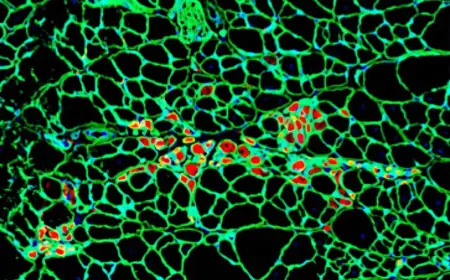How Allergies May Reduce the Risk of Lung Cancer: Scientists Reveal New Findings
Allergic rhinitis and eczema may help lower the risk of developing lung cancer. This conclusion was made by a team of researchers from the United States, based on a large-scale analysis. The results of their study were published in the journal Frontiers in Medicine.

The scientists analyzed data from 10 previously published studies, covering more than 3.8 million people. Their goal was to examine how different types of allergic reactions influence the risk of lung cancer. Bronchial asthma was excluded from the analysis in advance, as its proven association with increased cancer risk could distort the findings.
As a result, it was discovered that people with allergic rhinitis had a 26% lower risk of developing lung cancer. Interestingly, there were differences based on gender: in men, eczema—a chronic inflammatory skin condition—emerged as an unexpected protective factor. In women, a general allergic predisposition was associated with a reduced cancer risk, though allergic rhinitis on its own did not show statistically significant effects.
Possible reasons behind this protective effect
According to the researchers, this protective link may be due to increased immune system activity. During allergic reactions, the body produces high levels of immunoglobulin E (IgE) — antibodies that typically respond to allergens. However, recent research suggests that these antibodies may also help detect and destroy malignant cells in their early stages.
On the other hand, an alternative theory suggests that chronic immune stimulation could actually promote mutations and cancer development. Because of these conflicting possibilities, the authors emphasize the need for further research to better understand the pathophysiology behind this connection and to use this knowledge for cancer prevention and risk assessment — especially in the case of lung cancer.



























